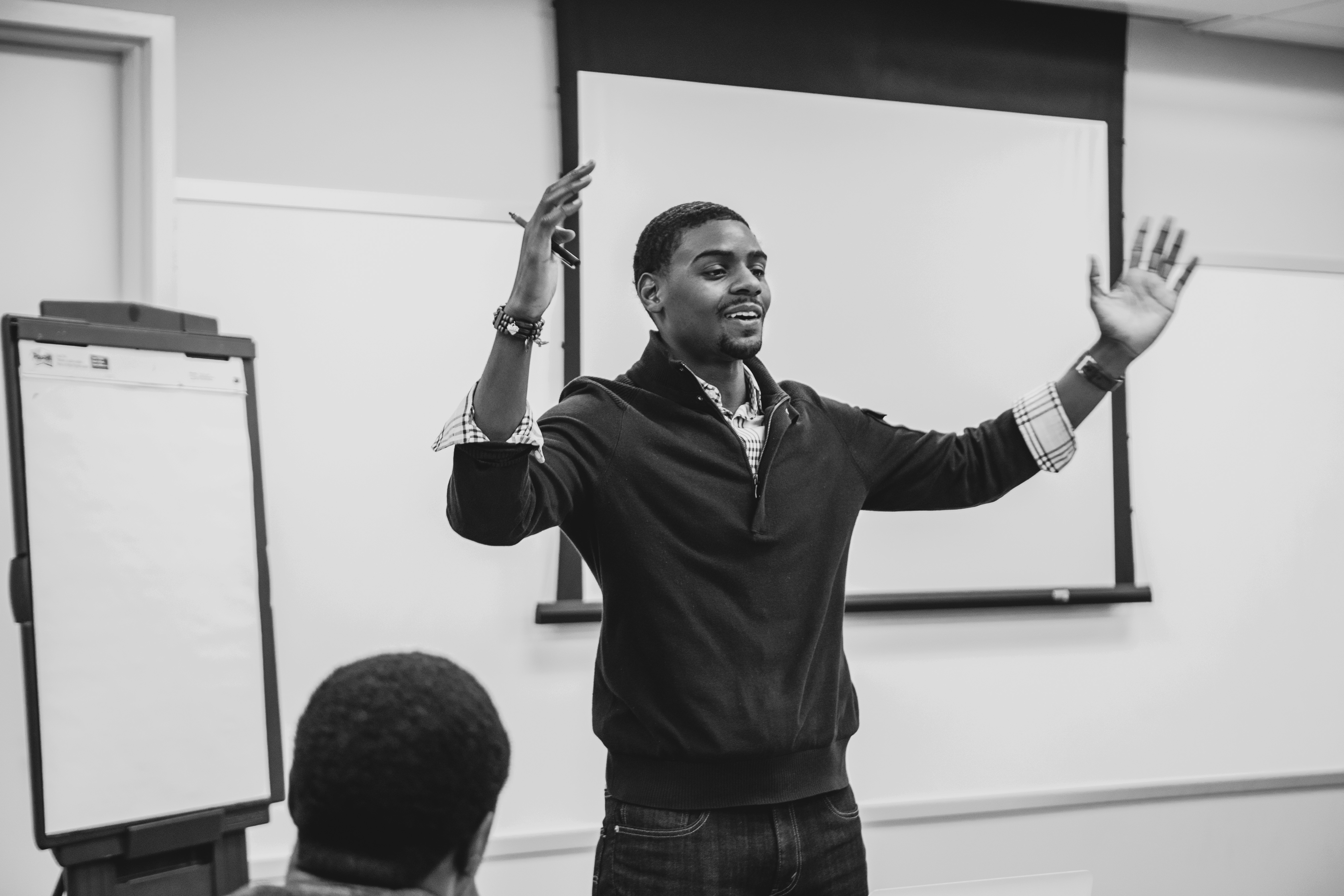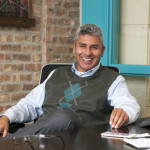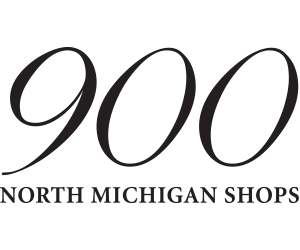Interview by Tatiana Walk-Morris
Photos by Jeffrey Marini
I grew up in a rural part of Fayetteville, North Carolina. To paint the picture: my road didn’t get paved until I was 16. From an enterprising standpoint, I’ve had some interesting exploits as I was coming up. I didn’t realize that Fayetteville was a small city in the bigger picture until I went to the University of North Carolina at Charlotte. As I got to travel more, things came into even more perspective.
I came in my freshman year of school, and I thought I did everything right. I got involved on campus. I got great grades. I even got a 4.0 my freshman year. When I went back home that summer I applied for a job at Toys “R” Us and didn’t get a call back. That freshman summer, I had a lot of time to think doing janitorial work. Afterward I thought, “Man, I don’t want this to happen to anyone else. How can I prevent it?”

Last August was when I was appointed as our global cochair of the Black Googler Network, a worldwide group that works to attract top black talent to Google. I was just two years out of school, and it was a bit daunting, to say the least. We launched chapters in Brazil, Dublin, London. I actually went to Brazil to help them with their black history month that they have in November. After I was doing all this work on a global level in the black tech space with Google, I started to think, What am I doing in my own backyard here in Chicago? I had started to notice trends across different communities I was visiting internationally and in the U.S. in the black tech community—there were a lot of transferable challenges and issues that people were facing. The biggest thing that alarmed me was there wasn’t a lot of connectivity. Everyone was in their own communities, fighting their own battles.
I started to ask myself, “How can we make Chicago a beacon in the tech community, in the black community, and in the world in general? Why don’t you just combine everything and make Chicago the global black tech Mecca? Do we even have the raw materials to make this happen?”
I spent about six months having different conversations with black leaders and tech leaders in the city, not telling them what I was thinking of doing but gauging what they thought about the city’s black tech community.
We had our very first meeting April 20 of this year, and it was only about five or six of us. Our game plan was that we were going to have our launch event June during Chicago Tech Week. We launched and have never looked back.
“The tech diversity issue is hot, but it’s really just a microcosm of racial dynamics we face in every industry and in other aspects of life.”
What we’re looking to do is tackle two problems. We’re introducing ways to strengthen connections and quantify collective impact within the black tech community. We’re actually taking a technology-first approach to doing that through our ecosystem network platform. On the front end, it’s a “directory on steroids” where members of the tech community can join, discover others, and connect with them. On the back end, we’ll get data and metrics to allow us to have a pulse on the health of the black tech community.
One of the main drivers for me for Black Tech Mecca is if we don’t figure out how we can come together and build a community among ourselves, then the pipeline of youth we’re sending into tech will be going into the wilderness. We have to furnish an environment where people in our community can come in and thrive.
The tech diversity issue is hot, but in my mind it’s really just a microcosm of different racial dynamics that we face in every industry and in other aspects of life. One thing that I talk about that I felt—and you can still feel it now—is there is an inferiority complex. Sometimes you get into a meeting and you’ll hear people who talk a certain way as if they know everything or use a certain jargon that you may not be familiar with. You can feel like someone’s smarter than you or you’re not as smart as everybody else. You’ve got to realize that they went through the same interview process. They’re no smarter, no better than you are. They may have unique strengths, you have your own unique strengths. You have weaknesses, they have weaknesses. That was one of the biggest struggles that I had to overcome.

The inferiority complex was one struggle, and then the tech fluency too. I got frustrated with people talking about stuff I had no idea what they were talking about. I don’t aspire to be a developer by any means, but being in the environment it feels like you’re missing out. That was one of the reasons why I started taking online classes. I don’t desire to be a software engineer and spend all my days coding, but it’s a good understanding to at least have basic principles.
Not many people are giving us flak for Black Tech Mecca, because almost a third of the city is black. If Chicago has a vision to be fueled by technology, you need to have as many Chicagoans plugging into this technology as possible.
You can make Chicago the place for blacks in tech. What about everyone else? What about Detroit? What about these cities all over the world? Our big bet is that once we’re able to refine this process and get it down, we would produce some type of blueprint for other cities to either increase or grow their black tech ecosystems. That’s long-term. But we have to get it right here first. v


